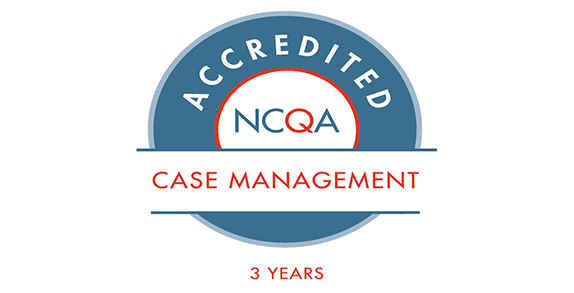Providing Peace of Mind for Yourself and Loved Ones
Whether you are active and healthy or living with a chronic disease, advance care planning is an important part of self-management at any age. While it can be overwhelming and uncomfortable to think about ever needing such a plan, the lack of advance care planning can result in confusion, questioning or disagreement among family members if you are unable to speak for yourself.
Advance care planning can be a gift to your family and loved ones. It ensures your wishes and preferences are consistent with the care and treatments you receive if you are unable to make your own decisions. Knowing how you want to be cared for and who you want to make decision on your behalf can take some of the burden off family and friends. A plan also gives your doctors information about your care preferences and whether you want life-sustaining measures if needed.
Some of the important conversations in advance care planning include those about the use of emergency treatments to keep you alive and the use of artificial ways to do this, such as CPR, ventilator use, artificial nutrition, and comfort care. Considering your personal values and what makes life meaningful to you can help guide your decisions. Do you want to have the most days, or is your focus on quality of life? Would you want to take pain medication at the end of life, even if it made you drowsy and lethargic?
Decisions on how you want to handle these situations could be different based on your age, and they can change as your life or illness progresses. Advance care planning allows you to provide instructions and update them as your views change so your decisions are heard.
ul li{padding-bottom:16px;}
Advance Directives: Sharing Your Healthcare Wishes
Whether you are living with a chronic disease or not, advance care planning is an important part of self-management at any age. An advance directive is meant to help patients ahead and guides doctors and loved ones in making clear decisions on their healthcare when they are unable to do so. Advance directives apply only to healthcare decisions, they do not affect financial matters.
Advance directives have three components: a living will, a healthcare power of attorney, and a Do Not Resuscitate (DNR) order.
- A living will tells doctors how the patient wants to be treated if they are unable to make decisions on their own.
- A healthcare power of attorney is a legal document naming someone with the same values and wishes to make medical decisions for the patient at times the patient is unable to do so.
- A Do Not Resuscitate order allows patients to choose whether they wish to have CPR performed if an emergency happens. When a DNR is signed, the doctor will write a medical order instructing all healthcare providers not to do CPR if the patient stops breathing or their heart stops beating.
When creating an advance directive, the plan must be in writing. In Ohio, the plan also must be notarized. It is important to give a copy to your doctors and those who will have healthcare decision making power. Keep a record of who has your advance directives.
By planning ahead, you can ensure you receive the medical care you want, avoid unnecessary suffering, and relieve caregivers of decision-making burdens and disagreements during emergencies and moments of grief.
National Healthcare Decisions Day Provides an Opportunity to Start the Conversation
Each year, National Healthcare Decisions Day is recognized on April 16, a day for all individuals to remember the importance of making personal healthcare decisions known. It’s vital to discuss end-of-life care wishes with family members, loved ones, and doctors regardless of current health status.
In the absence of an advance directive, medical personnel rely on loved ones to determine what a patient’s wishes might be. Family members often struggle to make these difficult decisions and are burdened by the challenge of making these care choices. Advance care planning enables individuals to be proactive in expressing their wishes and respecting and implementing those decisions in the future.
Sharing your desires regarding decision making and end-of-life wishes can be a gift to your loved ones should you become unable to speak for yourself. Making your priorities clear and documenting these thoughtful discussions ensures that care teams and loved ones can provide the care you want.
Being in charge of personal healthcare brings peace of mind for individuals as well as giving direction so loved ones are not left guessing and know they have fulfilled your desires.
To observe National Healthcare Decisions Day, you can start conversations with loved ones about your healthcare wishes and prepare yourself and your family for those decisions. Get started by visiting additional resources such as the Pure Healthcare Choices Advances Directives Booklet and Decide to be Heard.
ul li{padding-bottom:16px;}
Making Advance Care Planning Clear With a Living Will
It is important to talk about end-of-life care and express wishes. With advance directives and a living will, you can save your loved ones difficult decisions by detailing your wishes.
A living will is a written document that explains which medical treatments individuals would want to be used to be kept alive, as well as preferences on other medical decisions such as pain management and organ donation. The document is only used in situations where you are unable to tell your doctor what services you want to receive.
Determining decisions for a living will should come from an individual’s values: Would you want treatment to extend your life in any situation? Would you want treatment only if a cure was possible?
A living will should address multiple end-of-life decisions, including:
- Decide if, when, and for how long you would want to be fed by a feeding tube for nutrients or receive fluids through an IV.
- Determine if and when you would want to be resuscitated by CPR or by a device that delivers an electric shock to stimulate the heart.
- Consider if, when, and for how long you would want to be placed on a mechanical ventilator if you were unable to breathe on your own.
- Determine if, when, and for how long you would want to receive dialysis to remove waste from your blood and manage kidney function.
- Comfort care includes any interventions to keep you comfortable and manage pain, including pain medication, being fed ice chips, and avoiding invasive tests or treatments. Determine what level of care you want to receive.
- Specify if you would like your organs and tissue to be donated.
- Contact a local medical school or donation program if you want to donate your body for scientific study.
A living will can only be honored if your doctors and loved ones know about it. Therefore, it is important to let them know you have a living will before you become ill and to share your wishes with them. Regardless of your condition, sharing your wishes can help to ensure you receive the care you want.



